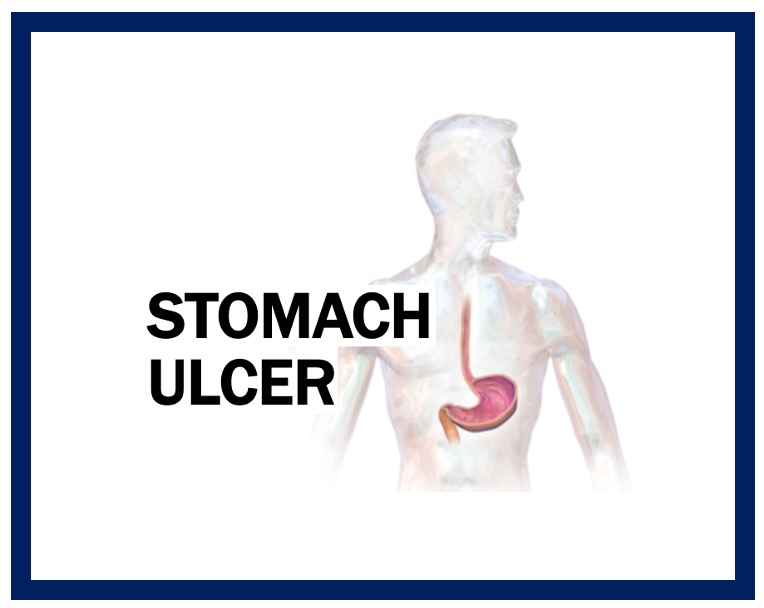
Stomach ulcers, also known as peptic ulcers, are painful sores that develop on the stomach lining, small intestine, or esophagus. They occur when the protective mucus that lines the stomach becomes ineffective, allowing the stomach acid to damage the lining.
While medication is often necessary to treat stomach ulcers, several natural remedies can help soothe the stomach and promote healing. In this article, we’ll explore various natural approaches to managing and alleviating the discomfort caused by stomach ulcers.
Understanding Stomach Ulcers
Before delving into the remedies, it’s important to understand what causes stomach ulcers. The primary causes include:
- Helicobacter pylori Infection: This bacterium is a major cause of stomach ulcers. It damages the stomach lining, making it more susceptible to acid.
- Nonsteroidal Anti-Inflammatory Drugs (NSAIDs): Long-term use of NSAIDs like aspirin and ibuprofen can irritate and inflame the stomach lining.
- Excessive Acid Production: Conditions like Zollinger-Ellison syndrome can cause the stomach to produce too much acid, leading to ulcers.
- Lifestyle Factors: Stress, smoking, excessive alcohol consumption, and a poor diet can contribute to the development of stomach ulcers.
Symptoms of Stomach Ulcers
Common symptoms of stomach ulcers include:
- A burning or gnawing pain in the stomach, often between meals or at night
- Bloating and belching
- Heartburn or acid reflux
- Nausea or vomiting
- Dark or black stools, indicating bleeding
- Unexplained weight loss
If you experience severe symptoms or suspect you have a stomach ulcer, it’s important to seek medical advice. However, for those with mild symptoms or who are looking to complement their treatment, natural remedies can provide relief and promote healing.
Natural Remedies for Stomach Ulcers
- Dietary Changes
Diet plays a crucial role in managing stomach ulcers. Certain foods can help protect the stomach lining and reduce inflammation, while others can exacerbate symptoms. Consider incorporating the following foods into your diet:
- Fiber-Rich Foods: Foods high in fiber, such as fruits, vegetables, whole grains, and legumes, can help protect the stomach lining by increasing mucus production.
- Probiotic-Rich Foods: Probiotics found in yogurt, kefir, sauerkraut, and other fermented foods can help restore the balance of good bacteria in the gut and inhibit the growth of H. pylori.
- Flavonoid-Rich Foods: Flavonoids, found in foods like apples, onions, garlic, and green tea, have anti-inflammatory properties and may help reduce stomach ulcer symptoms.
Avoid foods and beverages that can irritate the stomach lining, such as:
- Spicy foods
- Caffeinated drinks
- Alcohol
- Processed foods
- Citrus fruits
- Herbal Remedies
Several herbs have been traditionally used to treat stomach ulcers and promote healing:
- Licorice Root: Licorice root has been shown to increase mucus production in the stomach, which can help protect the lining from acid. Deglycyrrhizinated licorice (DGL) supplements are a popular choice as they don’t raise blood pressure.
- Aloe Vera: Aloe vera has anti-inflammatory and soothing properties that can help heal the stomach lining. Drinking aloe vera juice before meals may provide relief.
- Slippery Elm: Slippery elm contains mucilage, which coats and soothes the stomach lining. It’s available in powder form and can be mixed with water to create a soothing drink.
- Chamomile: Chamomile tea has anti-inflammatory and calming effects that can help reduce stomach pain and promote relaxation.
- Lifestyle Modifications
Certain lifestyle changes can also help manage stomach ulcer symptoms and promote healing:
- Stress Management: Chronic stress can worsen stomach ulcers. Practice stress-reducing techniques such as meditation, yoga, deep breathing exercises, and spending time in nature.
- Quit Smoking: Smoking increases stomach acid production and reduces the stomach’s natural defense mechanisms. Quitting smoking can significantly improve ulcer symptoms.
- Limit Alcohol Consumption: Alcohol can irritate the stomach lining and exacerbate ulcer symptoms. Reducing or eliminating alcohol intake can help the healing process.
- Avoid NSAIDs: If possible, avoid NSAIDs or use them sparingly. If you need pain relief, consider alternatives like acetaminophen, which is less likely to irritate the stomach.
- Supplements
In addition to dietary and lifestyle changes, certain supplements can support stomach health and aid in ulcer healing:
- Probiotics: Probiotic supplements can help restore the balance of good bacteria in the gut and inhibit the growth of H. pylori.
- Zinc-Carnosine: This supplement combines zinc and carnosine to promote healing of the stomach lining and reduce inflammation.
- Glutamine: Glutamine is an amino acid that can help repair the stomach lining and reduce inflammation. It is available in supplement form and can also be found in foods like chicken, fish, and dairy products.
H Pylori supplements are designed to support stomach health and inhibit the growth of H. pylori. It contains a blend of natural ingredients that work synergistically to soothe the stomach lining and promote healing.
When to Seek Medical Attention
While natural remedies can effectively manage mild symptoms, it’s important to seek medical attention or consult with functional medicine doctors if you experience severe or persistent symptoms. A healthcare professional can diagnose the underlying cause of your stomach ulcer and recommend appropriate treatment, which may include antibiotics, acid-reducing medications, or other therapies.
Conclusion
Stomach ulcers can be painful and disruptive, but with the right approach, you can manage symptoms and promote healing naturally. Incorporating dietary changes, herbal remedies, lifestyle modifications, and supplements can provide relief and support your stomach health. Always consult with a healthcare professional before starting any new treatment, especially if you have underlying health conditions or are taking medication. With a holistic approach, you can soothe your stomach naturally and improve your overall well-being.
Interesting Related Article: “Acid Reducers Helps Manage Acid Reflux and Heartburn“
